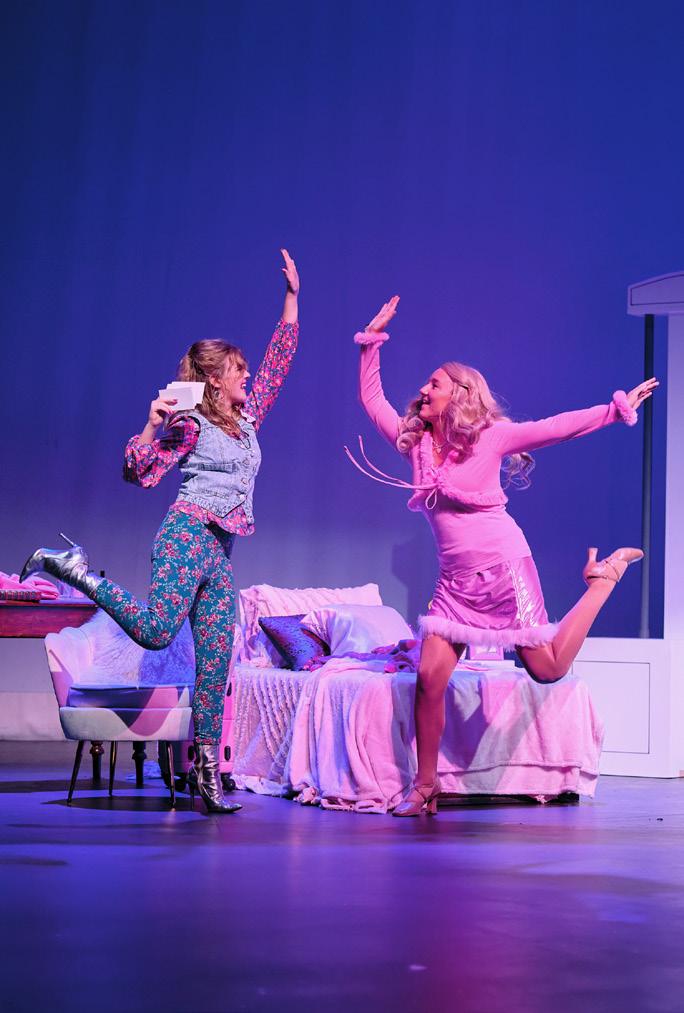






















PAGE 4
Principal's Message
PAGE 6
News
PAGE 7 On the Road
PAGE 8
Ignite Co-curricular Program
PAGE 10
Legally Blonde The Musical
PAGE 12
Outstanding Student Achievements
PAGE 16
An Intellectual TraditionThe example of our RSCJ
PAGE 18
An Intellectual Tradition for Today
PAGE 22
Exceptional Early Learning at KRB
PAGE 24
Early Literacy and Numeracy
PAGE 26
Sacred Heart Educators
Leading the Way
PAGE 28
New Work Experience Week
PAGE 30
Archives - Ahead of Her TimeLucy MacMahon (RB 1918)
PAGE 32
KRB Masterplan
PAGE 34
Celebrating our Community
PAGE 37
Our Alumnae Stories
PAGE 39
Our Events
PAGE 40
In Memoriam
A Sacred Heart education at Kincoppal–Rose Bay School aims to develop young people who can think critically and engage with the wider world, setting them up for long-term success. The 2024 Sacred Heart Goal, A Deep Respect for Intellectual Values, is core to this aim. The Goal invites our community to deepen our understanding of intellectual values and to consider how we can use our minds to better ourselves and interact with the world to make a positive impact.
As a school we are clearly focused on what this Goal means from an academic perspective – however the Goal is relevant to all parts of our lives, including our ability to think critically, to approach change, be creative and to understand who we are as people and our impact on others. At KRB, we also bring intellectual values to our mission and understanding of our charism, as they help formulate our relationship with our Sacred Heart beliefs. Although we choose to focus on one goal each year, we never see the goals in isolation as they are intertwined. I see staff and students using intellectual values to participate in service activities and empathise with the less fortunate; I see these values applied as staff and students make informed and considered personal choices, in an atmosphere of wise freedom; I see them in our personal relationships with God and more broadly in informing the decisions we make as a School community from our various initiatives to our strategic direction.
This Goal was chosen as our focus this year because we are in the process of implementing the School Improvement Plan - a two-year project which sees our School partner with the Association of Independent Schools (AIS) School Improvement Team, as we strive to empower every staff member and student to reach for academic excellence. This project involves deep and rigorous work, including collecting extensive amounts of data from HSC and NAPLAN results, as well as examining other data sources such as student attendance, subject selection and staff perspectives on learning and resourcing. This important undertaking is aimed at increasing the rigour of assessments to empower students to do the best they can do in the classroom, in assessments and in their approach to exams. It absolutely felt that the time was right to focus students and staff on intellectual values as we are all working together on this academic success program. As the year has progressed, our staff have been working on improving assessment processes by reviewing structures, dispositions and context. We are moving towards a differentiated assessment model which sees every student undertake supportive challenge – based on their ability.
In addition to the School Improvement Plan, we have sustained a strong focus of renewal of our pursuit of excellence in the spirit of this Goal through a number of new academic initiatives. The first Cambridge courses for Year 9 have commenced, beginning our pathway of offering a dual international credential to our students. When our students graduate from KRB, they are entering a highly globalised world where many will study overseas. This credential, recognised worldwide, will help open a myriad of doors for them. Another key 2024 initiative is the introduction of Honours Classes in the Senior School that see selected students in these groupings undertake a differentiated curriculum. We want every student, no matter what class she is in, to be challenged and we are already seeing great results! Formal examination periods for Years 7 to 10 students have been introduced to better prepare students to manage assessments in the later years. Other significant changes include amending the Senior School timetable to ensure greater consistency of lesson length, introducing specialist lessons for Kindergarten to Year 4 in Visual Arts and STEM in Years 5 to 6, implementing a changed Language Learning Model for our Junior School with French and Chinese becoming our focus languages, and introducing Accelerated Religious Education for Year 10. Finally, another important broader initiative that impacts classroom learning is our new mobile phone usage policy. This has been a resounding success as teachers report that students are engaging much more deeply in their learning and are more focused in their lessons. The discipline of this approach is itself an intellectual value.
For me, the focus on intellectual values is very much about developing a mindset and this goes well beyond the classroom. The reinvigoration of our Co-curricular Program to consolidate, streamline and expand offerings through the Ignite Program reflects our commitment to intellectual values. The Program presents so many opportunities for students to challenge themselves to develop skills, extend themselves, explore their talents and increase their focus and dedication. We have introduced new opportunities such as co-curricular Art in the Senior School as we view creativity as an intellectual value. Our expanded Debating Program includes new initiatives such as House Debating, a rigorous challenge which encourages our students to voice well-formed opinions on a range of issues. With regard to Sport, we have introduced a new model for the Junior School and evaluated the expectations and structures for Sport in the Senior School because we see commitment,

teamwork and training towards a goal as integral intellectual values. Our new Work Experience Program, which ran in Term 2, challenged our Year 10 students beyond the classroom. The students’ feedback was incredibly positive, and, for me, this really drove home just how valuable it is for our students to have real world experiences to apply their learning.
Underpinning all these initiatives is the importance of guiding our students to understand that learning is hard, but all learning opportunities are worth embracing. We want students to be dedicated to their learning, to gain insight into their unique learning dispositions, to know themselves and how they learn best and to be able to embrace lifelong learning. Fostering this attitude to learning is fundamental to our task as educators, even more so in our rapidly changing world where Artificial Intelligence (AI) is getting smarter and more prevalent. While there will be some amazing uses of AI that are indeed ethical, students and staff will need to grapple with its power and the moral questions it raises. As a society we need to continue to believe in the power of hard work and in the ability of our own brains to find solutions. AI is going to challenge our humanity, and we will no doubt see some negative impacts on our world and capabilities. It is going to be incredibly important to acknowledge the role of conscientous work and reflection in guiding where we go in our lives and as a society.
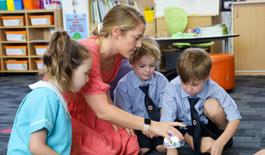


A s we embrace the chosen goal each year, we have long term vision, and we know that the work we do in unpacking the goal for our times will resonate beyond that year.
Our 2024 focus will continue to foster success at KRB well into the future.
I look at the many initiatives that came out of last year’s focus on Social Justice, such as the work with the St Vincent de Paul Vinnies Van and Staff Spirituality Day service opportunities. Moving forward from 2024, the School Improvement Program will continue as we work with AIS for the next two years as they assist with staff professional learning. Through both our new and ongoing curricular and co-curricular programs, students will continue to grow in their understanding of intellectual values and be able to graduate from KRB confident in applying their skills and knowledge as they negotiate the complexities of the future. It is my hope that our commitment to intellectual values and excellence – from fostering each child to do their best, to ensuring the best strategic direction for our Schoolwill be the long-term legacy of this busy but fruitful year.
Erica Thomas Principal
When students and staff returned in 2024, they found brand new food offerings available at our Café 135 on the Harbour Terrace! The Café is now under the management of our new providers, Victoria and Roberto Fucci and features a wide range of nutritious options for students and staff, including an onsite sushi chef!
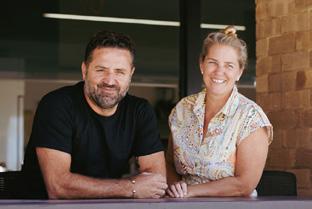
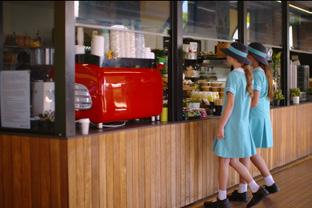
In May, Principal, Erica Thomas attended the Sacred Heart School’s conference at Baradene in Auckland, New Zealand along with five KRB staff and four Year 11 students: Erica Smith, Maree Di Fore, Grace Doman and Daisy Hodgson. The students were involved in leadership sessions with other students from our sister schools, while our staff presented workshops. The theme of the conference, 'Social Media in the Light of Catholic/RSCJ Values', invited attendees to consider the challenges facing Sacred Heart educators and students.
Students and staff collaborated with staff and students from Sacred Heart schools from our Province including New Zealand, Tokyo and South Korea and engaged in discussions about our shared mission.
This is the third year where students have been invited to join the conference; the first time was the 2022 conference held at KRB. The students attended some joint sessions with staff and some specifically for students around the themes of ‘Leading Consciously with your Religious Beliefs’ and ‘Social Media' Presence and Purpose.’
“Building connections at the conference made me realise just how strong the Sacred Heart network is, and how important our Schools’ values goals are in shaping like minded, kind and caring students.” – Daisy Hodgson, Year 11


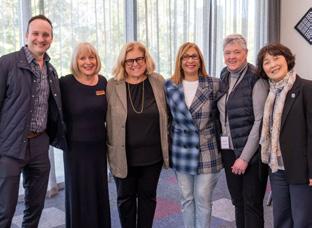
KRB is well known around Australia and beyond for its welcoming, close-knit boarding community. Since 1882, we have been proud to provide a safe and challenging environment that allows our boarders to build their confidence and skills and strive for academic excellence.
Over the years, KRB staff, students and families have been keen to embrace every opportunity to share our story and invite others to experience our community. KRB has been attending Boarding Schools Expos since the inaugural Boarding Expo was held 20 years ago in Dubbo. There are now four events held each year and in 2024, we visited Dubbo, Wagga Wagga, Moree and Tamworth. Earlier this year, Principal, Erica Thomas, Director of Advancement & Community, Mary Cook and Director of Students, Carrie Scanlan, travelled to Singapore, Hong Kong and China to attend international expos. This extensive reach is testament to the diversity of our past, present and future boarding communities.
Whilst the expos are an invaluable forum to meet with potential future families interested in learning more about KRB, they also provide an opportunity for staff to gain a deeper understanding of the communities our boarders call home. We also seek out opportunities to understand the lived experience of our boarders by attending events such as NSW and Federal Isolated Children’s Parents Association (ICPA) conferences in order to appreciate the challenges faced by remote rural families as they negotiate the myriad of hurdles to give their children the best education.
Often our attendance at an expo will be coupled with visits to nearby boarding family homes, farms and businesses, and involve KRB hosted events and gatherings that attract past, current and future students and their families.
Principal, Erica Thomas, says it's been a privilege to meet families in their own communities, whether that be in regional NSW or at an international destination: "Our families give up so much to send their children to Kincoppal-Rose Bay and it's important for them to know that they are part of a broader community that cares, wants the best for their child and wants partnership with them no matter where they live. Our visits 'on the road' is something very special that we do."
The many parents and alumnae who have, over the years, taken on significant roles as KRB Ambassadors reflect the sense of connection and belonging felt in our boarding community. Their presence at expos and in other support roles, their willingness to share experience and wisdom, and their passion for our School are a great asset to KRB boarding.




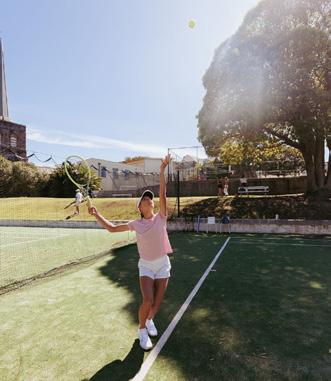
This year, KRB launched a brand new Tennis Program. Our new Head of Tennis and alumna, Brooke Leavens, started playing national tennis at the age of ten. She went on to win the Tildesley Shield in Year 12 and was the first and only student from KRB to win the Singles event in history of the Shield. Brooke also competed in the Junior Australian Open at Melbourne Park and ranked 7th in Australia. After leaving KRB she received a tennis scholarship to Brigham Young University (BYU), a NCAA Division 1 US College. She is currently the Director of Leavens Tennis Academy and has extensive experience running tennis programs for schools.
The new KRB Tennis Program features elite coaches who offer private lessons, group lessons, Tildesley Shield training squads and team practice. Our Junior School students will have opportunities to compete in new tournaments against other schools, to better prepare them for competitive Senior School tennis. Tennis camps are available to all skill levels every school holidays.
“I am very excited to be revamping the Program to create a holistic and highly professional approach. Students will be fostered to achieve excellence through high expectations and access to resources and support,” said Brooke.

In 2024, KRB has entered teams across both the Junior and Senior campuses in the ISDA, ISPHA, SDC and Archdale Debating competitions. In addition to this, a new interhouse Debating Program was launched, taking place during lunchtimes in Term 2. The Primary A ISDA Debating team, of Sophie Jarrett, Lauren Vitalone, Penelope Neal, Ariella Kendell and Cecilia Chen, reached the Quarter Finals. The Senior Archdale Debating team of Daisy Hodgson, Lucy Maher and Ariella Perkins progressed to the finals round tie breaker debates and the Year 8A Archdale Debating team of Piper Lawless, Sophia Nagorskaia, Holly Zaki and Ava Viviers reached the Quarter Finals. Year 11 student, Lucy Maher, was invited by the Archdale adjudicators to attend the IGSA representative debating trials, held at Monte Sant’ Angelo on 18 August. The nomination was based on Lucy's excellent performance over the initial rounds of the competition.
Head of Debating, Amanda Johnstone, said that commitment to debating is rewarded through the development of the ability to think rationally, build logical arguments and view a wide range of
topics that affect our world with discernment and maturity; “These skills assist our students beyond debating as they are the same skills that they need to write effective essays and reports and to manage the demands of the exam room."
Debating also builds empathy and makes students more aware of the world around them. Our students have argued motions such as "That we should build more public housing in wealthy suburbs;" "That we should offer a wage to primary domestic caretakers" and "That schools should actively subvert gender roles."
By engaging with these issues, our debaters truly embrace the 2024 Sacred Heart Goal of A Deep Respect for Intellectual Values.

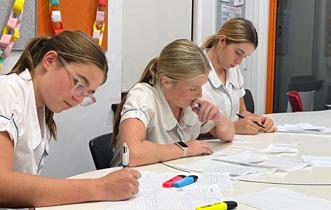
This year the Fitness Centre in the MTC was refurbished into a strength and conditioning facility. Our Senior students are thriving with the variety of individual exercise programs focused on strength training and conditioning. They also have the opportunity to participate in group fitness classes including pilates and yoga.
The gym is fitted out with new high-quality equipment from Alphafit, and provides students with an experience comparable to training at elite athletic facilities. The new layout has improved the capacity of the gym which accommodates larger numbers of students to participate in workouts.
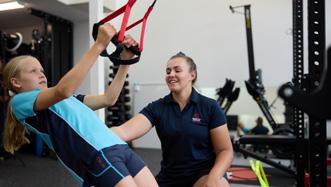
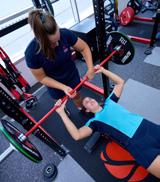


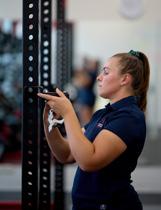
Kincoppal-Rose Bay was delighted to showcase Legally Blonde as our 2024 production.
The storyline centred around Elle Woods, as she navigated her way through Harvard Law School with style, discovering her self-worth and remaining true to herself. Principal, Erica Thomas, said the Legally Blonde performances brought real joy to audiences: “I congratulate all staff and students involved on the truly outstanding performances. With its key themes of empowerment, self-acceptance, and the importance of staying true to oneself when facing challenges, Legally Blonde not only delivered lots of laughs but was a fun and engaging way to consider this year’s Sacred Heart Goal of a Deep Respect for Intellectual Values, in today’s world.”



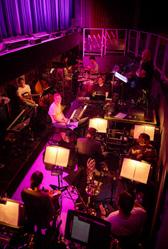








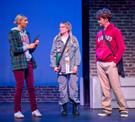
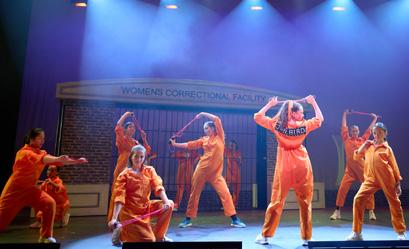








KRB competed in the Southern Cross Regional FIRST Robotics Competition. The Competition, known for its demanding tasks, themed this year’s challenge as 'CRESCENDO', encouraging teams to use their STEM capabilities to ingeniously design and program robots. The combined KRB and St Catherine’s team competed fiercely, ranking 19th among 50 teams.
In the 2024 Bebras Computational Thinking Challenge, Year 9 students Chantelle Wang and Chloe Zhu achieved a Credit while Mila Hall, Giselle Langley, Isabella Lee, Annabel Mills, Chiara Tully and Charlotte Zhang achieved Merits.
In the Ethics Olympiad, the KRB Year 6 team of Penelope Neal, Chloe O’Neill, Piper Short, Cassidy Bowler, Athena Joannou and Ariella Kendell achieved a Gold Medal. The Year 5 team earned an honourable mention.
In May, two KRB teams participated in the NSW Senior Ethics Olympiad for the first time. The Senior Blue Team, Lara Howard, Phoebe Giaouris, Emily Bartlett, Zara Sgambellone, Jade Rose Duffy, Ivy Montgomery and Lucinda Hudson, comprised of Year 10 students, received an Honourable Mention from the Judges.
In the Big Science Competition Angelina Peng (Year 7), Annabel Mills (Year 9) and Emelia Glynn (Year 10) achieved a High Distinction. The following students achieved Distinction: Year 7 students, Charlotte Gorman and Portia Salter, Year 8 students, Harriet Boyd, Piper Lawless and Sophia Nagorskaia, Year 9 student Chloe Zhu, and Year 10 student, JadeRose Duffy, Scarlett Minchin and Chloe Wilson.
In the Senior School, six out of eight teams placed in the top ten in their categories in the Da Vinci Decathlon. Year 7 Legacy team placed 4th, Year 9 Art and Poetry placed 10th, Year 11 Engineering placed 4th, Year 11 Creative Producers placed 5th and Year 11 Ideation and Codebreaking both placed 7th.
The KRB Year 6 team of Lauren Vitalone, Sophie Jarrett, Emily Oshiba, Penelope Johnson, Cordelia Yuan and Georgia Wilson achieved 10th place in the Engineering category.
In the Kangaroo San Frontieres Mathematics Competition, Year 4 students Lomani Gresham and Louie Jun both achieved a Distinction.
Charlotte Field (Year 11) was awarded an Academic Excellence Award 2023 by the University of Sydney. This event acknowledges one student from each school in NSW who has excelled in their studies in Year 10.
The Primary A ISDA Debating Team, of Sophie Jarrett, Lauren Vitalone, Penelope Neal, Ariella Kendell and Cecilia Chen, reached the Quarter Finals.
Year 5 singing student Azzuri Felix received a Highly Commended award in the City of Sydney Eisteddfod, competing against 45 others in the 10 Years and Under Contemporary Vocal Performance section. Azzuri performed an early Taylor Swift number, Our Song, showcasing her talent and dedication.
The artwork of 12 Barat Burn students including Georgie O’Shaughnessy (Kindergarten), Emma Zhang (Year 1), Lumina May (Year 2), Grace Wang (Year 3), Juliet Lacey (Year 3), Olivia O’Neill (Year 3), May O’Neill (Year 4), Sophia Small (Year 5), Storm Williams (Year 5), Josephine Yuan (Year 5), Emily Oshiba (Year 6) and Sibilla Andrews (Year 6), were selected for the IPSHA Virtual Art Show
Year 9 students Annabel Mills and Claudia Sidoti won prizes in the 2024 Waverley Youth Art Prize. The theme of this year’s prize was ‘Mysteries of the Deep’, inviting young artists to create an artwork exploring the possibilities of underwater worlds. Annabel received the Highly Commended award for the Intermediate category (13-15 years) for her series of three mixed media artworks titled Changing Waters. Claudia received the Highly Commended award for the Senior category (16-18 years) for her mixed media artwork titled Tea Time
In Term 1, KRB’s Year 6 Water Polo team won their Grand Final in the Eastern Suburbs Schools Girls (ESSG) competition.
Storm Williams and Sharon Wu (Year 5) participated in the NSW Interschools Equestrian at the Sydney International Equestrian Centre at Horsley Park in the Term 1 holidays. Congratulations to Storm and her horse Just Spirit who placed 3rd in her division for Jumping.
At the North West Equestrian Expo, Lily Timewell (Year 8) placed 1st in her age group for Combined Training, 2nd in the Height Class and 3rd in the Pairs event. Emma Austin (Year 8) secured 3rd place in the Most Suitable Mount for Expo category and 4th place in the Rider for the Gymkhana event.
Sophie Jarrett (Year 6) represented the IPSHA Netball team at the CIS Championships with the team winning all nine of their games. Sophie was then selected to represent CIS at the NSWPSSA Netball Championships
Year 6 students, Sophia Jarrett and Imogen Tully were nominated to trial for the IPSHA Netball team in March. Both students made it through to the final 16, and Sophie was selected in the squad.
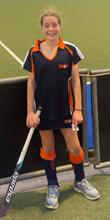



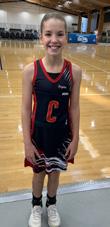

Year 5 students, Daisy Daniel, Isabelle Bryen, Lexi Findlay and Willow Dunlop were selected for the Randwick Representative Netball team in their age group.
Four Senior Netball Teams from Years 7 to 10 represented KRB at the Regional Schools Cup Competition in May. All teams had some wins throughout the day with the Year 7 Team finishing 2nd in their pool.
Jemima Huxley (Year 6) represented SEHA (South East Hockey Association) in the Under 14 Hockey State Championships in Wagga Wagga. Jemima scored two goals in their final pool match, enabling her team to qualify for the Quarter Finals.
At the Sydney Interschools Snowsports Championships held in the July Holidays, KRB students Arabella De Angelis (Year 4) placed 3rd in Alpine and Skier Cross, and 3rd in the Redlands Cup Race. Jessica Gorman (Year 9) placed 1st in Alpine, 2nd in Skier Cross, and 3rd in the Scots Cup Race. Charlotte Gorman (Year 7) placed 1st in Alpine, 2nd in Skier Cross, and 3rd in the Scots Cup Race. Skylar Heida (Year 8) placed 4th in Skier Cross, 7th in Alpine, and 2nd in the Scots Cup Race. In team results, Charlotte and Skylar came 2nd in Skier Cross, and they, along with Portia Salter and Sasha Barrass (Year 7) came 2nd in Alpine. Arabella De Angelis, Kyra Kadian (Year 4) achieved 5th place in Skier Cross.
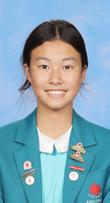





Tiffany Gorman (Year 11) qualified for the USA U18 Snowsports Championships. Tiffany competed as a foreign athlete in four events: Slalom, Giant Slalom, Super G and Downhill.
Poppy O’Brien (Year 9) competed in the Australian Athletics Championships, running in the Under 15 2km steeplechase and finishing 3rd in the nation.
Sarah Luey (Year 12) and Poppy O’Brien (Year 9) represented NSW in the Australian National Athletics Championships in Adelaide.
Poppy had a fantastic race in the Under 16 Steeplechase taking home the Bronze medal. In March, Sarah competed in the NSW Junior Athletic Championships in the 100m Hurdles finishing 3rd and securing her spot in the NSW team to compete in Nationals, where she finished 7th in the Final.
At the IGSA Cross Country Championships, Portia Salter (Year 7) Piper Sweeny (Year 8) and Poppy O’Brien (Year 9) were selected for the IGSA team to compete in the CIS Championships. The KRB team was awarded the most improved trophy.
In Term 1, the KRB team was crowned champions of the Eastern Suburbs Touch Football competition.
At the Touch Football State Cup, Year 12 students, Lucie Norburn, Bella McMahon, Sophie St John, Manon Spinola

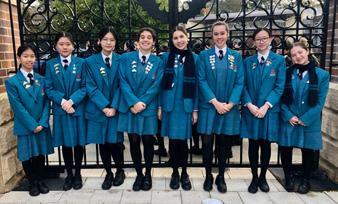





and Year 11 student Lexi Lancaster, competed as part of the Easts Touch Under 18 Girls team in the Grand Final. Harriet Boyd (Year 8) competed for Easts Touch Under 14 and Vera Febo (Year 7) Easts Touch Under 12, while Milly Shannon (Year 7) competed for her hometown club in the Under 12 division. Lucie, Sophie, Lexi and Bella were all then selected to compete for the Under 18 Southern Rebels representative side and Vera made the Under 12 team.
Ava Picklum (Year 12) was selected to represent her Rowing Club, Glebe, at the Australian Rowing Championships
In April, Felisha Kwok (Year 8) represented NSW in the Australian Dragon Boat Racing Championships in Perth. She won three gold medals, 1st in the mixed 500m, 1st in the women's 500m and 1st in the women's 1km race.
Emily Maxwell (Year 7) won the State OzTag title with her Souths representative side.
At the NSW State Surf Lifesaving Nippers, Emily Maxwell (Year 7) came 6th in the Individual Flags, 2nd in the Under 13 Girls Beach Relay and 1st in the Mixed beach Relay. Lily Wenmohs (Year 7) and Lucy Gladstone (Year 7) represented North Bondi, winning the State Championships. Lily’s individual
results included Gold in All Age Board Relay, Silver in Under 13 Board Relay Gold in Under 13 Cameron Relay and 5th in Under 13 Individual Board. Lily also was a state finalist in Board Relay, Surf Swim and Iron Person. Lucy came 6th in the Board Relay, 8th in Iron Person and 10th in Surf Swim.
KRB competed in the Queensland Surf Live Saving Championships, along with over 150 students from Surf Lifesaving clubs from all around the country. Lily Wenmohs (Year 7) competed in two individual events finishing 13th in the Under 13 IronWomen and 2nd in the Individual Board Race.
Lucy Gladstone (Year 7) made two individual finals and narrowly missed out on a third final by one place. Lucy finished 14th in the Swim final and 12th in the 2km Swim final. Emily Maxwell (Year 7) made it to the Under 13 Beach Sprint final where she finished 6th overall and 15th overall in the Beach Flags event.
Mila Hall (Year 9) was selected to the Under 15 IGSA Netball Team and from that trial was chosen to represent CIS schools in the NSW All Schools Championships. Allegra McDonald (Year 12) was also selected for the IGSA Under 18 squad.
Annabelle Waugh (Year 11) represented her club, UTS Balmain, in the Australian Water Polo League. She was selected to the IGSA Under 18 Water Polo team and the CIS Water Polo Team.
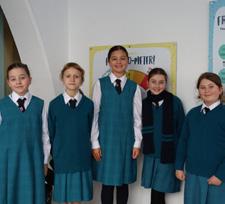
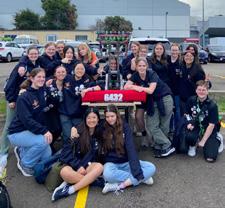
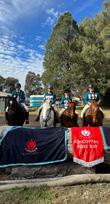


Annabelle also represented Australia Under 18’s in the New Zealand Under 21 Club Championships. Annabelle and her team finished 3rd and she was named team MVP for the competition.
Mila Hall (Year 9) and Georgia Sone (Year 11) swam in the Female Division of the Cole Classic Swim in the 1km race. Mila finished 1st and Georgia 5th.
Piper Sweeny (Year 8) Tessa Mitchelmore (Year 9), Mila Hall (Year 9) and Georgia Sone (Year 11) competed at the Junior Swimming Nationals on the Gold Coast and achieved many personal bests.
KRB students competed in the NSW All Schools Championships after qualifying through the IGSA and CIS Championships. The Under 14 Freestyle Relay team included Year 7 students, Santana Tonelli-Smith, Lillian Wenmohs, Amelie Zuza Tito and Year 8 student, Piper Sweeny, finished 4th. Georgia Sone (Year 11) swam in the Under 16 100m Freestyle event, finishing 6th in the state. Elaine Hu (Year 7) finished 5th in the Under 12 50m Backstroke.
Twenty-one students competed at the 99th IGSA Swimming Championships in March. KRB placed well ahead of last year’s results, achieving 10th overall.



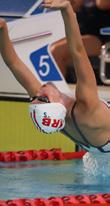
Indigo Bell (Year 12) represented IGSA in the CIS U19 Basketball Championships and was also selected to represent CIS at the NSW All Schools. Indigo also competed in the 2024 National Club Championships with the North Sydney Bears. Her team was the only one from NSW to win a medal.
At the Tildesley Tennis Tournament in March, Olivia Mackenzie (Year 9) reached the 4th round, Olivia Waite (Year 9) reached the 3rd round and the doubles pair of Violet Levy and Zara Sgambellone (Year 10) also reached the 3rd round.
We are so lucky at KRB to be able to draw inspiration from a long history of strong women who have given us incredible examples of how to live out the Sacred Heart Goals. Our Religious of the Sacred Heart of Jesus (RSCJ), both in the past and today, have always shown a deep and authentic commitment to intellectual values through their lives.
When Sister Elizabeth Sneddon joined the Order in the 1960s, whilst there was a uniformity of dress and order of the day, she found there was huge freedom of thought: “The educational philosophy of the Society has always valued individual thinking, placing understanding ahead of memorisation, and not readily succumbing to fashionable ideologies. RSCJ value thinkers and ideas matter.” This arguably manifested in the Order, establishing not only schools but also university collegesSancta Sophia College, at Sydney University and Duchesne College, at the University of Queensland: “The founders of Sancta Sophia were determined that it should be an academic institution with a holistic approach to the development of its students,” said Sister Mary Shanahan.
The Society’s rule of enclosure did not stop the Sisters enrolling to study at university and when Sancta Sophia College opened in 1925, it became a base for many sisters to gain further studies. According to Sister Elizabeth Sneddon, in the early days the sisters used to walk in pairs across the campus to lectures - Sisters Margaret D’Ath and Dorothea Hewlett were one such pair. May Craig was an alumna of Rose Bay who became an RSCJ on her graduation from her BA at the University of Sydney in 1918. Mary Arnold graduated with an MA in the late 1920s and Mary Brennan RSCJ graduated from Sydney University and Sancta Sophia. Mary Brennan was a very gifted student in Arts and Theology and went on to study at the Catholic University and Union Theological College in the US. Though she was invited to continue on with a doctorate, she chose to use her knowledge to help the people in the small town of Esk in Queensland: “Here Mary set up an office where she could help people to find where they could get the help and finance they needed especially for their children. RSCJ also helped with religion in the school as there were no religious teachers in the area", said Sister Mary Shanahan.
Many other Sisters obtained their degrees before becoming an RSCJ. Cecily Amiet obtained a Science degree from Queensland University. She taught Maths and Chemistry while continuing her study in Music as she was a gifted musician. Deasy Hartanto, who was professed in 2023, has a number
of degrees in Civil Engineering, Electrical Engineering and Engineering Management from the Queensland University of Technology.
Being such an intellectual Order, many Sisters have gone on to become educators at the primary, secondary and tertiary level with many teaching and leading in our Sacred Heart Schools. When Sister Elizabeth Sneddon was on a PostDoctoral Fellowship at Boston College, she was part of a group of American RSCJ who developed guidelines for RSCJ who were academics, based on the goal of a Deep Respect for Intellectual Values: “The guidelines encouraged critical thinking, wisdom, creativity, discernment, and integrity. It also encouraged them to consider the wider context of advancing human knowledge and sharing the fruits of their work generously,” said Sister Elizabeth Sneddon.
“What stands by us in life is, after all, discipline of mind and heart, habits acquired, power of steady application, and such knowledge of first principles as will enable new knowledge and new experience of any kind to find its right place. By this adaptability of mind and habits, by the power of judging and acting rightly in new circumstances, the educated mind is distinguished from one that has been merely instructed how to move in a well-known and expected order of things.” - Mother Janet Erskine Stuart RSCJ
Sister Mary Shanahan’s story, including her many achievements, is a testament to the centrality of intellectual values to the Sacred Heart charism. Her career has encompassed multiple leadership roles within the Society of the Sacred Heart, at Sancta Sophia College and at KincoppalRose Bay where she has been a Director of the School Board. She was Provincial of the Society in Australia and New Zealand for five years and was called to Rome to be on the General Council for six years. Sister Mary Shanahan has served as both Vice Principal and Principal of Sancta Sophia College within the University of Sydney. When she was Principal of Duchesne College in 1970, she received an award from the American Association of University Women which gave her entry to Yale University. This followed her Masters in History from the University of Sydney where her thesis was on the failure of the Benedictine Congregation to establish themselves in Australia.


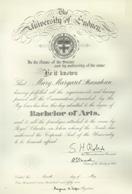




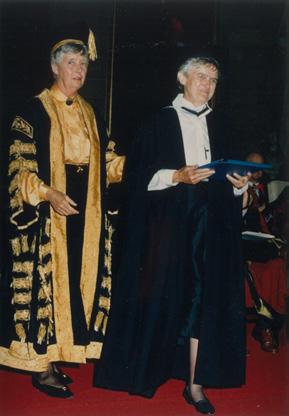
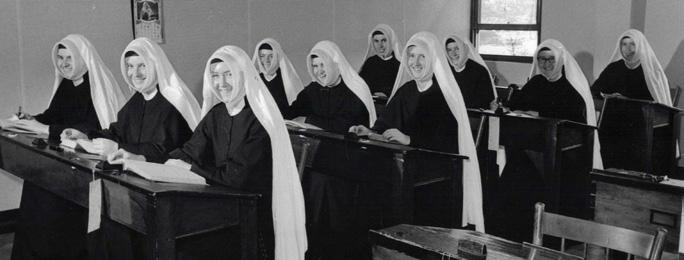
After her Masters thesis was published, she decided to return to Duchesne College to work with students on their growth and wellbeing. Mary also spent a year at Oxford where she developed her research and a year at Trinity College, Dublin studying Theology.
In 2019, Sister Mary Shanahan was awarded a Medal (OAM) of the Order of Australia for her service to tertiary education, and as a mentor of young students. In 2023, she was awarded the Honor of Croce Pro Ecclesia et Pontifice by the Holy Father, Pope Francis, for her distinguished services to the Church in the Archdiocese of Sydney and Australia. "The academic can never stand alone and my work in both university colleges gave me the chance to live that A Deep Respect for Intellectual Values by helping students to develop and accept themselves while deepening their mind. With all of this I consider myself more as a follower of Saint Madeleine Sophie Barat than an academic. She was a woman more interested in developing
relationships as a means to help in the development of others,” said Sister Mary Shanahan.
Principal, Erica Thomas, says here at KRB Sister Mary Shanahan continues to make a profound impact and give an incredible example: “I see Mary at 96 years old coming into work at KRB as a committed professional. This year she was invited onto a panel with Father Richard Leonard which shows she is still making a contribution to debates and discourse in the modern world. Her work today and in the past is an example of using your intellect for the greater good, compassion and commitment to others. I see Sisters Dianna Hayes and Lynette Toohey heading to their General Chapter in Rome to consider the future of the Society. I know they will reflect on what it will grow to look, how it relates to schools like KRB, the wider network in Asia and beyond. The very concept of chapter – the reflection and discernment – is living out this goal in a culture of intellectual engagement.”
For KRB Head of Research and Professional Practice, Trinity Hastie, the 2024 Sacred Heart Goal, A Deep Respect for Intellectual Values, is associated with epistemic virtue – our approach to knowledge is a value-laden proposition; “In order to fulfill the Mission of the Society and to discover the heart of Jesus and make it known to others, as a School, our charism is a lens or prism through which we approach knowledge and make moral and ethical judgements about the appropriate application of knowledge. This means that students must be offered opportunities to engage in active discernment about the moral and ethical implications of their use of knowledge, consideration of the competing truth-claims of different knowledge systems and the ways in which learning is a dialogic process of humanization and transformation.”
For KRB Director of Mission, Brennan Sharley, the Goal is essentially about understanding and valuing learning. “It’s about a deep respect for learning (our own and others) and the belief that it will lead to transformation and the betterment of society. The RSCJ has always been about the mind and the heart, and the goals express this. We believe in this importance of discernment - the head space that informs making that heart response genuine. We give space for discernment in Mission through things such as Espacio because the act of reflection is itself an intellectual value,” said Brennan.
Here at KRB we foster A Deep Respect for Intellectual Values throughout the curriculum and beyond the classroom in our relentless pursuit of excellence and innovation. In 2023, we commenced the AIS Effective School Program, a project aimed at enhancing student outcomes, comprising both academic excellence and wellbeing, through adopting a high-level strategic approach to school improvement.
This Sacred Heart Goal has, over the years, fostered a tradition of innovation in teaching and learning at KRB. “Our approach to STEM, for example, encourages our students to be experimental in their approach to knowledge, promoting productive risk-taking in order to develop courage and confidence,” said Trinity Hastie. Currently within the Year 5 curriculum, students are actively immersed in the principles of energy transfer, particularly delving into the realm of light energy through practical applications involving circuits. According to TAS Teacher, Kelly Taylor, students are investigating thermal energy, conducting experiments that explore concepts of convection, conduction and radiation: “Utilising simple resources such as food colouring and popcorn,
students have been afforded hands-on experiences that facilitate deeper understanding. Year 5 students are currently constructing a solar oven designed to harness the sun's radiant energy in purposeful ways. Year 6 students have been delving into fundamentals of the ‘living world’, with a particular focus on the domains of sustainable food and fibres. Students have been engaged in eco-friendly practices such as creating sustainable dyes from various food sources and understanding the purpose of sustainability, involving the repurposing of old materials, transforming them into functional items such as bags whilst learning sewing and textile skills. These initiatives not only promote environmental consciousness but also nurture skills in innovation and resourcefulness among Year 6 learners,” said Kelly Taylor. Beyond the classroom, our Ignite Co-curricular Program offers a myriad of opportunities for students to pursue personal passions in STEM-aligned areas, including the Junior and Senior Robotics Programs as well as Code Camp in the Junior School. This is in addition to various student clubs and societies, including the lunchtime STEM Club and Maths Offline.
“Having A Deep Respect for Intellectual Values does relate to the pursuit of personal excellence however, more profoundly, it relates to an orientation towards knowledge as being transformative of human potential. It involves the unwavering pursuit of truth and justice, and a commitment to model truth-seeking in order to safeguard the integrity of information and to protect the human dignity of all.” – Trinity Hastie, KRB Head of Research and Professional Practice.
In keeping with A Deep Respect for Intellectual Values, our approach to technology is mindful, with appropriate technologies being meaningfully utilised to enhance teaching and learning. One key example of this is our customised online interactive learning platform, Aspire. Trinity Hastie suggests that with the implementation of Aspire in 2019, KRB began a journey towards creating a robust, highly responsive and customisable Learning Management System that would be reflective of our Sacred Heart approach to education and offer more robust opportunities to include parents in our virtual environments: “As an online environment, Aspire reflects our Deep Respect for Intellectual Values through extending the boundaries of the traditional classroom to facilitate asynchronous learning experiences, responding to individual learning interests and

needs through the curation of resources and the availability of multimodal and digital technologies to provide immersive learning experiences,” said Trinity Hastie.
When Janet Erskine Stuart was asked what success in education looks like, she replied “we bring up the children for the future ... our education is not meant to turn the children out small and finished but seriously begun on a wide basis.” A KRB education equips students to face the challenges of the future through the lens of a Deep Respect for Intellectual Values.
According to Trinity Hastie, our approach to technology at KRB is one of the biggest challenges of today and into the future. Artificial Intelligence (AI), focuses on the transformational possibilities within education but also the need to educate students about how to use AI ethically, transparently and in a manner that avoids the transmission of misinformation or detracts from the agency of students as learners.

Since May 2023, a team of teachers and leaders from KRB have been participating in the AIS Effective Schools Service. This project aims to enhance student outcomes, comprising both academic excellence and wellbeing, through adopting a high-level strategic approach to school improvement. The team incorporates representatives from Barat-Burn and the Senior School and has undertaken a rigorous, data-informed approach to the design of wholeschool improvement initiatives.
The aims of the ESS process are to:
• establish enabling conditions and enact effective school improvement processes.
• engage teachers in cycles of improvement that lift teaching and learning.
• embed school-based change, using evidence-informed decision making.

In collaboration with consultants from the AIS, the ESS team has gathered a broad range of baseline data to evaluate our current teaching and learning offerings. They have also conducted an audit of significant artefacts relating to our School Mission and Vision, to ensure values alignment and adherence to our Five Goals as well as the Sacred Heart Philosophy of Education.
As we have inquired deeply into our current context, we have also developed new artefacts to guide our future discernment. These have included our Sacred Heart
Educator Attributes which have been ratified by our staff and outline our shared expectations of all involved in the formation of students at KRB. We have also articulated a Vision for Learning which captures the purpose of our shared investment in enhancing learning at KRB.
We educate hearts and minds through disciplined inquiry and active engagement with the complexities of our wider world. We embrace productive struggle in the pursuit of personal excellence. We cultivate the intrinsic sense of wonder essential to learning in order for our students become discerning discoverers of justice and truth.
A range of potential improvement priorities has been incorporated into an implementation plan, following consultation with key stakeholders including our Values and Culture Committee, Junior School Executive, Senior School Heads of Department and Wellbeing Teams. Further consultation with additional stakeholders, including students and parents, will be incorporated into our ongoing evaluation processes.
The project is a valuable way for our School to ensure that we are intentional and rigorous in our processes of resource allocation, capacity building of staff and provision of rich and meaningful learning opportunities for students. Additionally, it builds leadership capacity, using a design thinking approach to complex problem-solving and assisting with prioritisation of School initiatives to allow us to work sustainably towards the fulfilment of an educational offering that allows all KRB students at to flourish.
Angela Thomas Director of Teaching and Learning
An interview with Nicole Johnson, Head of Early Learning.
Why does the KRB Early Learning Centre (ELC) adopt the Reggio Emilia philosophy?
The principles from Reggio Emilia align themselves well with the Goals and Values of a Sacred Heart Education. At the centre of both these is the child. The principles that come from the Educational Project of Reggio Emilia are intertwined and focussed on a strong Image of the Child. At the core of Sacred Heart Education is Madeleine Sophie Barat’s passion for education, as articulated in her widely known quote; “For the sake of one child, I would have founded the Society.” The philosophies from Reggio Emilia are not a package or a way of teaching – they are a set of values, beliefs and principles that were founded by parents’ strong passion for educating children. They are based on their innate curiosities of the world and the belief that children are capable and competent, expressing themselves through 100 different languages in relation to materials and others.
How has the Sacred Heart philosophy influenced the way our ELC has evolved?
Our Early Learning educators aspire to teach children Catholic values based on the Sacred Heart Goals in a tolerant and inclusive manner. We aim to develop a strong sense of community, a sense of belonging, a sense of what it means to live in Australia and positive citizenship in each child. We believe connections with the local and School community enhance learning opportunities which, in turn, promote a sense of belonging and connectedness to the wider community. Sister Mary Shanahan RSCJ is a regular visitor, and the children love to listen to her share her thoughts and they love to enthusiastically share what they are learning with her. The Sacred Heart Goals are the soul of the ELC. They have allowed for the evolution of deep, intellectual learning through research, debates and dialogue. They have helped create passionate advocates for social justice issues that are embedded in projects and everyday visits to the Wild. The children constantly reflect on themselves as members of the community, sharing their own unique understandings of God and their own place in the world, growing in their knowledge of right and wrong, fairness and integrity.
What does the 2024 Focus Goal, A Deep Respect for Intellectual Values, look like in ELC?
Our Image of the Child is reflected in the way we challenge children and question them. Staff develop what Carlina Rinaldi calls a pedagogy of listening - inviting thinking through relevant and purposeful questions. Staff seek higher order thinking that involves creating and analysing, looking for the unexpected as a way forward to learning. A Deep Respect for Intellectual Values is reflected in all that happens in the ELC – the children work as complex problem solvers, as critical thinkers analysing and inquiring, creativity and outside the box thinking and sharing of imaginative possibilities for answers. Staff and children communicate shared ideas and come together to produce detailed and intricate ways of expressing those ideas.
How do the learning spaces in our ELC foster intellectual curiosity?
Our learning environments are welcoming spaces, which reflect and enrich the lives and identities of children and families who participate in the setting and respond to their interests, needs and the intention behind the research happening each year. The indoor and outdoor environments are used to inspire, captivate, engage and provoke children to make choices and solve problems. We believe our environments are like teachers — beckoning the children to explore, to learn, to imagine and to investigate. Our spaces invite exploration, they stir up questions and promote flow. We provide contexts and materials that use nature, reused or found objects, rubbish, colour and light.
Describe the teaching and learning that happens in our ELC?
In being true to our Image of the Child, our contexts, research and provisions are created with a great deal of intention. Staff come together to share robust dialogue about ways forward for the children and the research they themselves are engaged in. There is great emphasis placed upon collaboration, creativity and development of conceptual understandings. Learning is viewed as a process of individual and group construction, whereby problems are identified and the children share solutions as possibilities for understanding. The curriculum is designed after listening to children, documenting their learning and embracing their potentialities and voices as valid contributors.



Each year the subjects we choose, the concepts we feel are important and the research we wish to share alongside children, come to us by way of connections to something that is currently being explored. In both centres the concept is the same but the children may take very different journeys in growing their conceptual understanding. From the tasty delights of researching what food is all about in Sophie’s Place, where the children created their own cookbook and developed a healthy understanding around nutrition, came the desire to design a further understanding and explore the concept of change, as food moves through the body. The research brought the children to create a giant digestive system where they could enter through a large mouth and walk their way through the process of digestion.
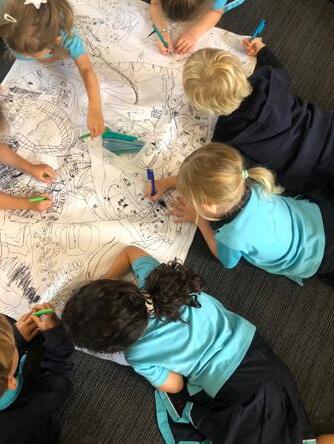

This year we are researching the concept of ‘Wild’. Because of all our time spent in the wild we haven’t over the years truly sought an understanding from the children of what wild means. The idea of a ‘wild heart’ has emerged as the centre of being wild but also as the place of truth that makes our Wild Time wild. We look forward to where the children might take us, as the year continues to unfold.
“In our ELC, never has one year been the same as another - so vast are the possibilities and the curiosities of children.” Nicole Johnson, Head of Early Learning.
Early literacy and numeracy have undergone a renaissance in recent years, and some of the first things to go were learning and memorisation. KRB has embraced this shift and our Kindergarten to Year 2 students are already benefitting from scientifically backed, evidence-based methods to help them learn. The results speak for themselves.
Previous reading instruction in Australia often relied heavily on language memorisation. It emphasised exposure to literature and context rather than explicit phonics instruction. These methods left many readers without the foundational skills to decode words and unlock the magic of reading.
Enter the MultiLit program - short for Making Up Lost Time In Literacy. A research team from Macquarie University has been researching and refining this program since 1990. The K-2 InitiaLit program focusing on the cognitive processes involved with reading, landed at KRB in 2020.
According to Deputy Head of Junior School: Teaching and Learning, Luke Duncan, the program starts with what the student already knows and gives them opportunities to add more knowledge and move onto the next level.
“It’s a really great program that helps students connect letters with sounds, and then it’s quite a sequential way of introducing vocabulary to enrich them,” he explained.
The class readers are different too.
“The previous model used a lot of memorisation. Students were given books with lots of words, and that the hope was they’d know some words and then others they’d slowly learn. But they didn’t have the skills to understand a new word,” he explained.
The new readers, called ‘decodables’, are designed differently.
“Decodables are books that only use the sounds that the students have learned, and then they progress as they’re learning those,” he said.
The results have been phenomenal.
“I have taught Year 2 for the past four years. I was able to see the previous program and the results, and then the change that came in. It was a dramatic improvement in terms of their writing and their reading,” he said.
“I was blown away by how much their writing and reading had improved. They’re able to decode words when they’re reading, and then they’ve got the skills and the strategies to do it,” Luke continued.
In 2024, the program moved into Year 3, where students were introduced to a program called SpellEx. It aims to extend their understanding of words, what words mean, and how and why they’re written.
For Numeracy, there has been a similar transition.
“We’re moving away from an approach which was more based on teaching mathematical concepts that focused on procedures and formulas. Connections in Mathematics are essential as they reveal the interrelatedness between different concepts, allowing students to see how mathematical ideas build upon and interact with each other to form a cohesive understanding of the subject," Luke said.
Instead, the fresh approach to Mathematics, prioritising a conceptional understanding, helps students understand how and why Maths exists.
“We really want them to enjoy and love Mathematics. We’ve tried to ensure that they see that it’s interesting, it can be quite beautiful, it can be real,” he said.
Luke doesn’t want to hear any child say ‘I’m bad at Maths’. "So often, children lose their confidence in their early years, either by being graded into a low class or not grasping a concept. They don’t realise that understanding Maths is fluid, and can depend on the effort you put in."
“We take a growth mindset approach to Mathematics. We want students to improve their productive disposition and see Maths as worthwhile. They believe they can do Maths, they can do any level, but they have to put in the effort,” he explained.
KRB’s approach to teaching early numeracy makes sure every student can access the problem but is also challenged.
“We call them low floor high ceiling tasks. This means every student has an access point, but when you talk about high ceiling, it’s the opportunity for them to really excel,” he said.
How that works is by giving a core question to the class that has enabling prompts and extending prompts.
“An enabling prompt might pose the question in a way that reduces the complexity so that it’s accessible for students to get to that point first, before they step to the next point. We try to encourage that in a fluid way so students can access that when they need to, but they might not at other stages,” Luke explained.
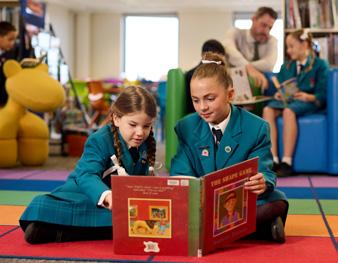
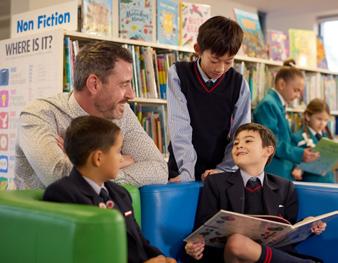
“On the other side is the extending prompt, so if they’re ready for the challenge, they can do that,” he continued.
"The benefit of that is everyone’s working on similar content. You can have conversations with the class that everyone can take part in."
Although prioritising conceptual understanding is crucial in modern Mathematics education, direct instruction still holds a vital place in our classrooms, particularly for foundational numeracy skills: “While memorisation of formulas and timetables may not foster a deep understanding of mathematical concepts, it provides students with a necessary toolkit to tackle more complex problems. Direct instruction ensures that students have a solid grasp of essential arithmetic operations, which serves as a scaffold for higher-level thinking. By mastering basic skills through direct instruction, students gain confidence in their abilities and are better equipped to engage with and appreciate the deeper mathematical concepts presented in our curriculum. This balanced approach, combining direct instruction with conceptual learning, ensures that all students have the opportunity to succeed and develop a genuine love for Mathematics,” Luke explained.

“Trying to find opportunities to see Maths in action such as engaging with algorithms to make robots (in the STEAM lab). Even with art, you’re looking at your drawing and measuring to make that real world connection,” Luke said.
In 2022, the new K-2 Maths syllabus was integrated and the Years 3–6 syllabus was introduced last year, and impact is already evident: “We’re just seeing great results and we’re hoping to keep extending that through,” said Luke.
Connections in Mathematics are essential as they reveal the interrelatedness between different concepts, allowing students to see how mathematical ideas build upon and interact with each other to form a cohesive understanding of the subject – Luke Duncan, Deputy Head of Junior School: Teaching and Learning.


KRB is blessed to have both teaching and non teaching staff who genuinely lead the way in embracing and modelling A Deep Respect for Intellectual Values.
Our staff not only are highly passionate and accomplished in their respective areas, they strive to improve and extend themselves at every opportunity. Our staff are recognised by being invited to present at conferences, submit articles for specialist publications and being nominated for and receiving awards.
In June KRB Teacher Librarians Amanda Johnstone, Michael Lukins and Rachel Pennay attended the AISNSW Teacher Librarian Conference. The conference, titled ‘Optimising Learning - Harnessing Technology in the School Library,’ focused on the transformative impact of generative AI on the information landscape and school libraries.
At the same conference, Head of Library and Information Services ELC-12, Amanda Johnstone, presented the guidelines the School has developed for AI use in assessment tasks. Amanda highlighted the innovative work teachers are doing to create rigorous learning experiences that challenge students to be active, informed technology users. This collaborative effort involves classroom teachers, teacher librarians and specialist teachers. The presentation featured the work of Science Teachers Sally Parker and Rachele Rugiero, who are teaching students to evaluate the usefulness and reliability of information from generative AI sources.
Earlier this year, Trinity Hastie, George Wheeler, David Brookes, and Luke Duncan attended the Schoolbox Meetup in Melbourne. This was a valuable strategic opportunity to futureproof our digital ecosystem and drive innovation in teaching and learning, assessment and wellbeing initiatives across our campuses. In alignment with this Meetup’s focus on innovative approaches to educational data, Trinity presented at a session entitled 'Getting the Most Out of your Educational Data with
Intellischool' during which she shared KRB’s current approach to using data visualisations to enhance teacher understanding of the impact of their practice upon student outcomes.
Helen Yip, KRB Head of Visual Arts, was invited to present a professional learning workshop at the National Visual Art Education Conference, held at the National Gallery of Australia, Canberra, in January. Her workshop, titled ‘Embodied Lenses: Investigating the Body as Site’, addressed the conference theme of ‘repositioning’ through engaging delegates with exciting research into contemporary artistic practices in performance art, film, installation and wearable art.
Late last year, KRB hosted a much-anticipated Boarding Schools Conference in the Year 12 Learning Hub. We were thrilled to welcome many colleagues from Armidale, Bathurst, Canberra and Tamworth as well as staff from schools from across Greater Sydney. With a program designed to inspire, challenge, and broaden perspectives, the sessions provided insightful discussions, collaborative learning, and networking opportunities. The conference was an opportunity to explore the latest trends, share experiences, and gain valuable insights that will undoubtedly further enrich our approach to boarding education.




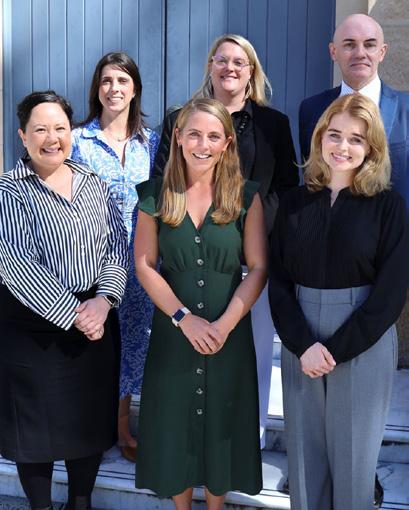
This year, the efforts and talents of many KRB staff members have been recognised through nominations for various awards.
Leanne Valencia, Student Opportunity and Career Education Advisor, was recently recognised as a Finalist for her outstanding contribution to Vocational Education and Training Work Placements through the office of The Youth Partnership. Leanne’s focus on equipping KRB students with the skills and knowledge to thrive in a rapidly changing world, delivers outstanding opportunities for Senior students. Six KRB teachers were this year nominated as part of the Australia’s Best Teachers campaign, celebrating their dedication and commitment to teaching. Principal, Erica Thomas, described Katy Franklin, Zarena Williams, Grace Bird, Mark Stubley, Amanda Carreira and Danielle Fairthorne as exemplary educators, who not only excel in delivering content but also nurture character development in their students: “Ms Franklin was praised for innovative teaching methods, Ms Williams for engaging parents in the learning process, Ms Bird for instilling a passion for English in students and Mr Stubley for his multifaceted role and


engaging style as a Music teacher. Ms Fairthorne was lauded for fostering interest in her subject and Ms Carreira for her unwavering passion for early years education.”
Danielle Fairthorne, Head of Sheldon House and Head of Religious Education was nominated for Head of Department of the Year in the 2024 Australian Education Awards. Her genuine care for students and staff, coupled with her ability to drive change, makes her an exemplary candidate for the Head of Department of the Year award.
KRB Mathematics teacher, Nancy Lin, was offered a Research Scholarship by the Australian Mathematical Science Institute (AMSI) after achieving academic success in her Bachelor’s degree in Pure Mathematics at UNSW Sydney. Nancy was also awarded the 2023 Women in Mathematics and Statistics Prize for the best performance by a female in a Pure Mathematics course by UNSW. During the summer school holidays, Nancy attended AMSI’s three-day conference at the University of Melbourne to present her project to scholarly peers from various universities across Australia. Her research topic 'The spectra of Toeplitz operators on Hardy-Hilbert spaces' is in a field of pure mathematics called functional analysis.

During National Careers Week in May, our Year 10 students immersed themselves into work experience opportunities across a range of industries, including fashion and the world of business. Our students gained first-hand insights into these industries, providing them with some direction into their future professions.
Leanne Valencia, Student Opportunity & Career Education Advisor, said the opportunity to shadow a professional provided the students with incredible insights as well as valuable experience in the work environment; “In addition to cultivating curiosity, encouraging greater self-reflection and creating opportunities for conversation, we also hope this will assist with subject selection and future course and career exploration.”


On the Monday of Work Experience Week, Year 10 visited University of New South Wales and had the chance to immerse themselves in a variety of workshops, each designed to provide a glimpse into potential career paths and inspire their future academic and professional endeavours. The worksop included; Media, Business, Science, Medicine & Health, Politics, Law and Justice, Engineering and Civil Engineering.
On Tuesday to Thursday, students participated in Work Experience, joining a range of workplaces from hospitals to design businesses, veterinary clinics, advertising companies, law firms, museums and art galleries, early childhood institutions and schools as well as sporting organisations and media.

On the final day of the week, students shared their highlights and experiences with each other and then participated in a resume writing and interview skills workshop.
Principal, Erica Thomas, extended a special thanks to our KRB parents and alumnae who assisted with work placements, making this important week possible; “Work Experience Week is a pivotal step for our Year 10 students in their journey towards higher education and work.”
The inaugural Careers and Work Experience week enabled our Year 10 students to apply classroom knowledge in realworld settings, as well as explore areas of different industries

and professions that interested them: “The week provided an opportunity to explore career areas and university life and also helped students develop their communication, problem-solving, and time management skills, which are all foundation skills for their future academic and professional lives,” said Mrs Valencia.



In February 1915, a 14 year old student from Cootamundra walked through the gates of Rose Bay School of the Sacred Heart, on the next step in her academic journey. Born on 21 May 1901, Lucy Gertrude MacMahon was the fourth of eight children – three boys and five girls – of Thomas MacMahon, solicitor of Cootamundra, and his wife Mary Ellen (nee O’Donnell).
Lucy completed her Leaving Certificate at Rose Bay in 1918. In her final year at school, she received the Prize for Science Subjects and a Certificate for Good Conduct and Diligence (1918 Rose Bay Annual Distribution of Prizes booklet). Lucy’s Leaving Certificate results included Honours in English, First Class passes in Modern History and Music, Second Class passes in Mathematics I and II, and a Pass in French (Leaving Certificate Examinations, Freeman’s Journal 30 January 1919 p16). Excellence in Music was nothing new to Lucy, who successfully passed several examinations of the Associated Board of the Royal Academy of Music while studying under Miss Constance McDonald in her hometown of Cootamundra (Cootamundra Herald, 16 October 1914).
Lucy was also an accomplished tennis player, teaming up with Loretto Morrissey to win the Doubles Championships at a tournament at Double Bay in December of her final year at Rose Bay (Rose Bay School Journal, December 1918).
Lucy matriculated to the University of Sydney, where she studied Medicine and won an Exhibition (a form of scholarship) to the University. The Student Registers for both Rose Bay and Kincoppal, Elizabeth Bay schools suggest that while she wasn’t the first Sacred Heart student to matriculate to the University of Sydney, Lucy was the first to be accepted to study Medicine.
In 1924, Lucy graduated from the University of Sydney with a Bachelor of Medicine (MB) and Masters in Surgery (ChM).

She undertook her residency at the Royal Prince Alfred Hospital in Sydney. After her graduation, Lucy worked at the Canterbury District Memorial Hospital until 1932, when she moved to Lewisham Hospital. Prior to her departure for England in February 1938, Lucy was honorary anaesthetist at St Vincent’s Hospital, Sydney. By all accounts, Lucy remained in England until after the Second World War, and on her return to Sydney returned to St Vincent’s Hospital. She also worked with two of her brothers, Eddie and Joe, who were both surgeons, and at Lewisham Hospital.
Lucy was admitted as a Fellow of the Faculty of Anaesthetists of the Royal Australasian College of Surgeons (the forerunner to the Australian and New Zealand College of Anaesthetists) in 1952, on the same date as Dr Florence Marjorie Hughes, who had graduated MBBS from the University of Melbourne in 1922, two years before Lucy graduated MB (Bachelor of Medicine) ChM (Masters in Surgery) from the University of Sydney. Information from the Geoffrey Kaye Museum of Anaesthetic History suggests the two women were working in the area of anaesthetics contemporaneously but is not definitive enough to say whether they were the 'first'. What is clear is that Lucy was one of Australia’s earliest female anaesthetists.
Away from her professional life, Lucy had a thriving social life attending balls, weddings and parties throughout the 1920s and 1930s. She was a regular visitor to Melbourne, where one of her sisters lived, and where her mother came from.
It seems clear that Lucy’s family environment was one which encouraged learning, personal excellence and service to the community. Many of the functions Lucy attended were fundraising events for hospitals and social clubs. Two of her brothers were surgeons, the third a highly regarded barrister


whose death at an early age was much lamented by all who knew him. Two of her sisters married doctors, while another sister Dora, (RB 1925), was a doctor and great supporter of Sancta Sophia College, within the University of Sydney. The family connection with Rose Bay continued with Dora’s daughter, Ann Bye AM (RB 1968) whose life has also been one of service.
The values instilled in Lucy and her siblings converge with the educational philosophy of the Religious of the Society of the Sacred Heart of Jesus. Since 1882, when the Five Foundresses, led by Mother Febronie Vercruysse, opened the Society’s first school in Australia at Rose Bay, our School has been a place for the education of hearts and minds, to produce young women and men of integrity and compassion.
A constant refrain through the years has been one of fidelity to the educational philosophy of Saint Madeleine Sophie Barat –the Society’s founder – with its insistence on the personalised care of each student to achieve their potential. Perhaps the Society’s first official name – the 'Religious of Christian Teaching' – neatly describes its raison d'être.
While the Society’s name changed, its focus on education with an emphasis on the whole person has never wavered. The Rose Bay School Prospectus of 1911 noted that “special care is given to the training of the heart and the formation of character”, a focus which continues to be reflected in the philosophy that is a characteristic of a Sacred Heart education as expressed in the Five Goals:
Sacred Heart education is framed by the assumption that education is a developmental process that lays the foundation for the students to become integral persons, people who live lives of integrity. In the lives of alumnae such as Lucy MacMahon, her sister Dora and niece Ann, we see the manifestation of this educational philosophy.
GEOFFREY KAYE MUSEUM OF ANAESTHETIC HISTORY WEBSITE (HTTPS://WWW.GEOFFREYKAYEMUSEUM.ORG.AU/FELLOWS/HOME/LUCY-GERTRUDE-MACMAHON/) ii HTTPS://WWW.SACREDHEARTUSC.EDUCATION

1. State Approval: In 2021, our Masterplan received State Significant Development approval, marking a significant milestone. This endorsement underscores the importance of our vision for enhancing educational facilities.
2. Improved Access, Stage 1 Junior School: A new road connecting Vaucluse Road to the Junior School entrance was opened in 2023. This improvement has alleviated traffic congestion and has received positive feedback from parents.
1. The Hughes Centre: To ensure successful implementation of the Masterplan, we will commence the next phase by transforming the Hughes Centre, located in the Senior School, into a state-of-the-art Performing Arts Centre. The Hughes Centre project will refurbish the existing auditorium, stage and gallery into a contemporary learning environment, focusing on the performing arts. It will consist of
• Three general learning areas, two of which will open into a theatre with retractable seating or a theatre in the round
• A state-of-the-art lecture theatre
• Music equipment and storage facilities, which can also be used as a dressing room and a staff collaboration area.
This additional space will ensure that KRB is well prepared to begin work on the Junior School, by maximising space in the Senior School, to be used by both Junior and Senior students as needed.

Junior School Stage 2: Work on the Junior School will involve a transformation of all learning and additional spaces on the Junior School campus.
We aim to create an environment where every child can thrive, learn, and achieve their personal best.
If you are interested in hearing about these Junior or Senior School developments, please contact:
Mary Cook Director of Advancement & Community
T: 9388 6024
E: cookm@krb.nsw.edu.au

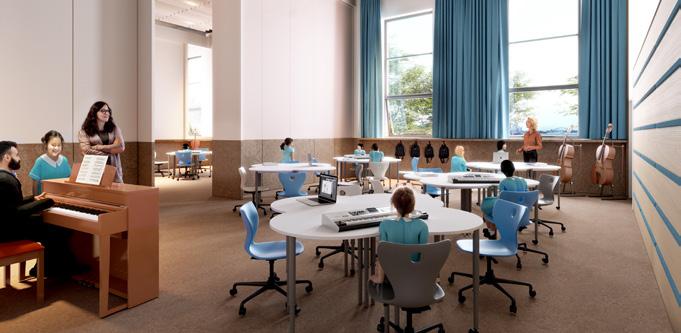
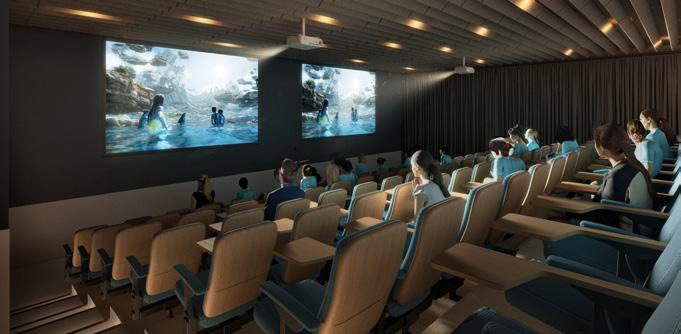

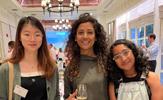

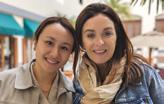


The visit to Shanghai, Hong Kong and Singapore by Principal Erica Thomas, Director of Students, Carrie Scanlan and Director of Advancement & Community, Mary Cook was a wonderful opportunity to meet past, current and future members of the KRB community.
School expos in Shanghai and Hong Kong were well attended by many prospective families who were looking for an environment where their child would be encouraged to achieve their best and be well supported, both in the day and boarding school.
A number of current and future parents and alumnae attended the functions held in Shanghai, Hong Kong and Singapore.
Erica Thomas provided details about the KRB Strategic Plan for 2023-2026, the SELF+ Wellbeing Program and the ways that the School is enhancing excellence in teaching and learning, including Honours classes and the Cambridge International course, which has begun in Year 9. The fact that KRB is connected to 150 schools across 40 different countries enables students to embrace global citizenship as a way of life. Those present were very interested to hear about the ways the school is building global competencies, through the Reconciliation Action Plan, Exchange Programs and the Virtual Collaboration Programs.
Many families commented on the warmth of the Sacred Heart charism, the strength of our traditions, and our strong desire as a School to connect globally.
Our international alumnae were excited to discuss ways that they could connect with each other in their countries and are planning programs to implement greater collaboration.
Visits to other schools also provided many ideas as to how different schools in Asia were responding to the complexities of educating young people in their countries.






Over 120 boarding and day parents enjoyed a wonderful weekend in Mudgee in June, including a private tour of the Mudgee Regional Art Gallery, welcome drinks at Kelly’s Irish Pub and lunch and the Bligh Picnic Races on Saturday.
Special thanks to Scott and Lizzy Galloway, Phoebe Bull and Prue Hannon for their efforts in organising such a memorable weekend.
The three Grandparents & Special Friends Mornings for our Kindergarten to Year 6 students, Year 7 students and our Joigny children enabled many visitors to come to KRB and spend time with the students. The visitors to the K-6 morning visited the classrooms, saw some of the students’ learning experiences and participated in various activities.
Over 100 visitors attended the Year 7 Grandparents & Special Friends Morning in May. Year 7 students were very proud to show their visitors around the School, following a Liturgy for the visitors.
The Joigny children also enjoyed performing for their visitors during the Grandparents Morning in May. This was followed by a visit to the Joigny Centre to see the exciting activities in which the children are involved.





















Our Mother’s Day events were an opportunity to honour the incredible mothers and mother figures in our community and show our appreciation for all that they do.
Over 400 parents and carers of the Junior School students began the Mother’s Day celebrations with a visit to classrooms and participating in activities planned by the students. This was followed by a morning tea with time to spend with mothers and special friends.
A record number of over 800 guests attended the Senior School Mother Daughter Dinner on Saturday 17 May. Head Girl Holly Dawson was an outstanding MC, and Year 12 Debating Captain Maggie Eisenhauer read a wonderful poem about her three years as a KRB student.
We were delighted to hear a speech by Georgia McCristal (Garling, 1988), alumna and a mother of five daughters, Claudia (2013) Eliza (2016) Antonia (2017) Mia (2020) and Camilla (2024) all of whom attended KRB. Georgia’s journey at KRB began with her mother attending Rose Bay Convent and later Kincoppal from 1952 to 1963. Georgia spoke movingly of her long involvement at KRB and the impact the School has had on her and her family:
"As I stand here on the eve of Mother's Day, surrounded not just by families some of whom I have known since my childhood but also by generations of memories, I can't help but think of the role this remarkable School has played in our lives.
What has stood out for me is the School’s commitment to fostering not only academic excellence but also spiritual and moral integrity. These are the values that scaffold our lives, creating individuals who are not only scholars but stewards of their communities. KRB has been a nurturing ground for building character, resilience, and respect for one another."




The Principal’s Dinners held in in Term 1 and 2 were wonderful opportunities to welcome the newest members of the KRB community and to share details about the Strategic Plan 2023 - 2026.
We also connected with some of our international families over morning tea in May. Principal, Erica Thomas, shared updates on a number of learning and co-curricular opportunities at KRB and parents also provided their insights and suggestions for enrichment and ongoing collaboration.
After much planning, the Rose Bay Class of '63 chose Bowral for their 60 Year Reunion, a popular choice given many still live in rural NSW. With 17 attendees, the class enjoyed lunch at a local restaurant, followed by reminiscing and laughter at Loretto Long’s home. They fondly remembered classmates who had passed away or who could not attend.
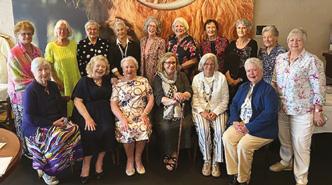
The Rose Bay Class of 1964 recently celebrated their 60 Year Reunion. Twenty alumnae gathered for a luncheon at the Royal Sydney Golf Club, including many who had travelled from regional areas, interstate and from overseas. Trish Johnson (Bradford), who travelled from Texas, presented the group with a special book she had collated of School memories and photos, updates on people’s lives and musings over the years.
A quote in Trish’s book which resonated with the group was “You can go through life and make new friends every year, every month practically, but there was never any substitute for those friendships of childhood that survive into adult years. Those are the ones in which we are bound to one another with hoops of steel”. Alexander McCall Smith (The No 1 Ladies’ Detective Agency)

In November 2023 the Kincoppal class of 1968 shared a wonderful 55 Year Reunion at the Kirribilli Yacht Squadron. They travelled from country New South Wales, Queensland and Rosemay “Bud” Johnson flew in from Seattle, USA. There was much laughter and wonderful reminiscing about shared experiences including the formation of the School newsletter, “Kincoppal Echoes,” singing Mamas and Papas’ songs in the common room and sneaking paddle pops back to School in our suspenders!
Our placemats on the day depicted scenes of school life including drama productions of Candy Pink and Christ in the Concrete City for the annual Genesian school festival, produced by Mrs May Puzey. They chatted about many of the Sisters who were such an integral part of their education and felt grateful that 'the bonds of our Cor Unum' are still strong for us today. They also remembered our classmates who have passed away; Debbie Malouf, Virginia Hill, Michelle Dorsen and Janis Lander. They look forward to our 60th Reunion in 2028.

The KRB Class of 1977 held its 45 Year Reunion in the Drawing Room of the Royal Sydney Golf Club. Thirty-six classmates from regional NSW, Brisbane and Sydney came to an evening of drinks and canapes to catch up on missed news, stories, hugs and laughs.
Six candles were lit throughout the evening to remember those classmates who had passed away. A brunch was held the following morning at Lisa and John Ballhausen’s home with 22 classmates and some partners enjoying a few more hours of catching up.

Gabrielle Ebsworth

On International Women’s Day this year, alumna, Gabrielle (Gaby) Ebsworth hosted the fifth Future Women and First Nations Breakfast and discussion Panel in Sydney, which reflected on the invaluable contributions of First Nations women to our society. The line-up of speakers featured remarkable First Nations voices sharing their stories and insights, including Tanya Hosch, Mundanara Bayles, Rachael Sarra, Jarin Baigent and Alicia Veasey.
Gaby, a proud Wangkumara and Barkindji woman from Narromine, NSW, was thrilled at the attendance of a number of KRB students and staff, reflecting that “Attending KRB on an AIE Foundation Scholarship truly changed my life and I’m so proud to be able to connect, support and share these experiences with the Indigenous girls at KRB today."
Gaby graduated from KRB in 2015 and attended the University of Melbourne to study Politics and Sociology. She changed her degree to focus on Neuroscience in order to pursue a career in public health.
Gaby is currently working as a Project Lead - Indigenous Health at the Australasian College for Emergency Medicine (ACEM). Previously, Gaby has worked as a consultant to help provide culturally safe dermatology training for GP registrars. She has also worked as a lecturer and tutor at the University of Melbourne in the Department of Medicine, Dentistry and Health Sciences and as an Indigenous Research and Engagement Coordinator at the Australian Stroke Alliance.
In 2021, Gaby was the recipient of the Telstra Health’s inaugural Brilliant Women in Digital Health Award for work as co-founder and clinician of the First Nations Dermatology Service at the Royal Melbourne Hospital.
Gaby is also the Chair of the Aboriginal Leadership Group (ALG) at the Melbourne Academic Centre for Health (MACH). The ALG advisory committee is responsible in ensuring the continued focus on furthering culturally safe healthcare and health research pertaining to Victorian Aboriginal communities.
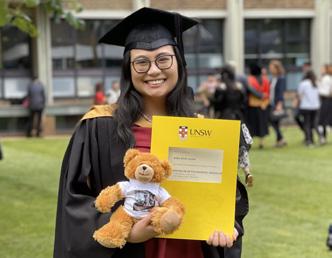
After graduating from Kincoppal-Rose Bay in 2017, Kyra completed a Bachelor of Engineering in Mechatronics and a Bachelor of Arts (History) with a minor in Psychology at UNSW.
At UNSW, Kyra was the Executive President of the UNSW Mechatronics Society where she managed operations and an executive team for the University’s Engineering School Student Society. This involved recruiting a team of directors and subcommittee to facilitate large-scale events, workshops and projects as well as establishing and maintaining faculty, industry and student society links for collaboration. Kyra was also the President of the UNSW French Society and President of the Musical Theatre Society. She also served as a UNSW Engineering Student Ambassador for four years where she guided aspiring engineers, sharing her knowledge and experiences to help them navigate their academic journeys.
As Project Manager of her final year of Mechatronic Engineering thesis, Kyra and her team built a prototype machine to automate the installation and deployment of Klemmfix for Transport for NSW. They were awarded the Best Undergraduate Final Year
Thesis Award 2023 from UNSW's School of Mechanical and Manufacturing Engineering.
In her professional role as a Graduate Software Engineer at Quantium, Kyra applies her technical skills to solve complex problems in software development in the Cloud Platform space.
Kyra plans to design and build machines and robots that automate processes, challenging and extending the limits of human capabilities.
“As someone who is working in engineering, I am already at the frontier of development, the newest ideas and the latest creations. I want to work in the space industry and be really in the frontier of innovation.”
Kyra has joined the KRB Connect Mentoring Program and believes her diverse skill set in Arts and STEM enables her to provide a broad range of insight and perspective in these two different worlds.

Maia has worked in the field of classical and opera music for many years and has captivated audiences all over the world with her stage presence and performances. Before relocating back to Sydney during the COVID-19 pandemic, Maia performed in the title role in Grigori Frid’s Das Tagebuch der Anne Frank at Theater Altenburg Gera in 2020, and in 2020-2021 as a soloist in a wide range of repertoire for operatic gala concerts, including recordings for the Mitteldeutscher Rundfunk
She graduated from KRB in 2007. She was the first recipient of the Ian Duncan Choral Scholarship. She completed a Diploma of Opera (Sydney Conservatorium of Music) and a Bachelor of
Music/Arts (UNSW). She then moved to Germany where she studied a Masters of Opera (Hochschule für Musik Franz Liszt Weimar) and was a member of the Thüringen Opera Studio.
In 2019, Maia performed the role of Pamina in Die Zauberflöte in the Oper Oder-Spree festival and Gretel in Hänsel und Gretel in a return appearance with the Jenaer Philharmonie. Other roles included: Susanna and Barbarina in Le Nozze di Figaro; Zerlina in Don Giovanni, Mademoiselle Silberklang in Der Schauspieldirektor; and Amy in Little Women. Her latest operatic engagement was in the role of Une Italienne in Pinchgut’s production of Charpentier’s Medée at the City Recital Hall in Sydney in December 2022.
Maia has been the recipient of numerous awards in her operatic career including the MTO German-Australian Opera Grant, Helpmann Family Foundation Scholarship, Opera and Arts Support Group, NSW Wagner Society, and Joan Sutherland and Richard Bonynge Foundation. Most recently, she was awarded a position in Opera Queensland’s 2023 Young Artist Program where she most performed in their production of Sunset Opera and covered the role of Fiordiligi in the new production of Così Fan Tutte. In addition, Maia was awarded the Johnson Memorial scholarship by Opera Australia.
In 2022, Maia was the soloist for Mozart’s Mass in C and Schubert’s Mass in G with the UNSW Collegium Music Choir and Orchestra, Bach’s Magnificat in D BWV 243 with the Phoenix Choir Blackheath and Bach’s Cantata BWV 140 with St Andrew’s Cathedral. She also toured the Women of the Pietà with Pinchgut Opera and performed in Rossini’s Petite Messe Solennelle with the Phoenix Choir Blackheath.
Recently, KRB music elective students from Years 9 to 12 were thrilled to attend Opera Australia’s performance of La Traviata where Maia appeared in the chorus.
Maia is currently staring as Mimi in Opera Australia’s production of Puccini’s La Boheme, which commenced its National Tour throughout regional NSW, Victoria and Tasmania in July 2024.
Congratulations to the following alumnae who were married in the Kincoppal-Rose Bay School Chapel in 2023 and early 2024.

May 2023

30 September 2023


3 February 2024


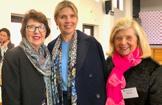

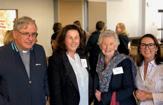

On Sunday 26 May we welcomed over 100 alumnae and family to the KRB Chapel for the annual Sacré Coeur Association Memorial Mass and Luncheon, hosted by the Sacré Coeur Association. The Mass was celebrated by Fr Martin Maunsell B Th. Josie Ryan was soloist and was accompanied by organist, Kurt Ison.
We gave thanks and remembered and prayed for our loved ones who have passed away throughout the year.


On Sunday 14 July the Chapel Society and the Sacré Coeur Association of NSW welcomed over 100 guests including alumnae, past parents and members of the wider community to the KRB Chapel for an Organ Recital by Dr John Joseph (JJ) Mitchell. Living in Virginia, USA, this was JJ’s first visit to Australia and his only recital with a program to showcase the special features of our historic organ.
JJ studied at Westminster Choir College and graduated with a Bachelor’s degree in Sacred Music and then completed his Masters of Sacred Music in Organ Performance from
the University of Notre Dame. JJ has also studied at the Conservatoire á Rayonnement Régional de Toulouse (France) before completing a Doctor of Musical Arts in Organ Performance from the University of Houston, Texas USA. Here he wrote his thesis on The Great Toulousain Dynasty, the Puget family of organ builders. Despite not having seen it, JJ included the organ in the KRB Chapel as one of the five significant instruments the Puget family built.
JJ presented a lecture on his studies of the Puget organ encompassing the history, evolution and legacy of Théodore Puget, followed by a recital where he exhibited the full musical capacity of the organ. The concert program included works by Bach, Widor, Louis Verne and one of JJ Mitchell’s own compositions.
Thank you to Ann Henderson (Lynch, K 1958), President of the Chapel Society who organised this wonderful event. Donations were gratefully received by the Sacré Coeur Association for the Sacre Coeur Association Bursary.
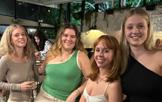
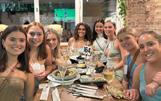


The Sacré Coeur Association (SCA) hosted a gathering for alumnae from the Classes of 2021, 2022 and 2023 in April. The event was held at the Royal Oak, Double Bay and were delighted to see the girls from the three recently graduated year groups. It was wonderful to hear all about the activities the girls have been involved in since leaving KRB, including travels, studies and employment opportunities.
This annual event is key on the SCA Calendar, bringing together our newest alumnae to share experiences and collaborate on life after KRB.
Vale - Edwina Considine
02 May 1962 - 12 May 2024
Edwina Considine nee Kennedy (KRB 1979) had a long involvement with and commitment to KRB. She was a KRB student from Year 5 to Year 12, a staff member in the Development Office 2000 to 2007, parent of Georgina Considine (KRB 2014), and a Sacre Coeur Association Committee member whose knowledge of and affection for so many of the RSCJs and older alumnae were invaluable.

At school, Edwina had friendships across different groups in her year, including many boarders. These friendships lasted her whole life. Edwina loved planning a social function, getting people together, and she applied this enthusiasm into instigating and organising many of the Class of 1979 reunions. Edwina’s working life was spent mainly in administration in various organisations including American Express, Wedgewood and various family businesses. She was a superb networker and her role as Alumnae & Events Manager at KRB made full use of her talent for communication and event planning. Travel was a major passion in Edwina’s life and she regularly travelled to visit friends in Europe, the UK, Hawaii, Hong Kong and Singapore.
Edwina was a devoted daughter to her late parents Ronald and Veronica, a proud mother of Georgina and a wonderful sister to Stephanie.
Edwina passed away from complications following back surgery. There was a huge turnout, including many from the Class of 1979 and other KRB year groups at the celebration of her life held at Royal Sydney Golf Club. They came to honour and remember “our dear, funny, smart and generous friend."
Vale - Elenie Diacopoulos
29 October 1943 - 14 January 2024
Elenie's daughter Rhea (Moppy) graduated in the KRB Class of 1990. Elenie taught at the Junior School at KRB for over 25 years and retired at the end of 2019.

She taught many 'English as a second language' (ESL) and newly-arrived overseas students who had very little English or none at all. Elenie loved working with these students and was highly regarded by the families. She often organised coffee mornings for the mothers to meet
so they could get to know each other and practise English conversation. Elenie was well-travelled, an avid reader and had many memories of former students of diverse nationalities who have been enriched by her teaching capabilities and devotion to their needs.
Vale - Gretchen Mary Kelly RSCJ
05 May 1928 - 24 January 2024
Gretchen Mary Kelly RSCJ was born in Melbourne in 1928. Her father was a general practitioner and surgeon and her mother a trained nurse. The family lived in Wangaratta, Victoria.

Gretchen's primary education was with the Brigidine Sisters and her secondary education was at Sacré Coeur in Melbourne. She entered the noviceship at Rose Bay in February 1946 and made her First Vows in August 1948.
In 1955, Gretchen made her Final Vows in Rome. Following that, she lived in the RSCJ Community of Sancta Sophia College, Sydney University and graduated with a BA majoring in English and History. Then, whilst teaching at Rose Bay and Stuartholme, she undertook part-time study and gained a BA (Honours) and an MA in English Literature. Gretchen’s qualifications and experience prepared her for a new undertaking in 1968-1970, lecturing in education at Loreto Hall Teacher Training College in Auckland New Zealand.
In 1970, Gretchen was appointed Mistress General (Principal) at Kincoppal, Elizabeth Bay. She later worked in other areas; building a Religion Program for State Schools in Brisbane, 19761984, working with an ecumenical group of collaborators, and in Catholic Adult Education publications in Sydney 1985-1995, where she worked with Monsignor Tony Doherty.
When her health made it time to move to Karlaminda she worked with stroke victims, and helped those who were disabled and in need. Gretchen moved to St Joseph’s Nursing Home at Kensington in 2014 where she died peacefully on 24 January, 2024. An extract from the eulogy written and read at Gretchen's funeral by Lynette Toohey RSCJ
‘A highly intelligent woman, with great wit, humour and irony, suffering fools with subtle forbearance, spiritually astute… In her gentleness and her friendship, I found a person of great empathy and gentle guidance…. Her friendship was authentic and simple. She understood and defended her strengths and could smile at her limitations. Without fanfare she touched the lives of others.’
Vale - Jane Burns AM
04 May 1932 - 17 April 2024
Jane Burns AM was the Founding Director and long time CEO of the peak body for crafts in Australia, the Crafts Council of Australia. Jane was also a founding member of the Arts Law Centre of Australia, the National Association for the Visual Arts, the National Arts Industry Training Council (now known as Create Australia), and the Australian Academy of Design, Stuart Gallery and Studios and the Australian Costume and Textile Society.

Jane was born in Crookwell, NSW and was a graduate of the Rose Bay Class of 1950. She received prizes for excellence in French and awards for singing. In her final year at school, Jane was a Blue Ribbon recipient and was a member of the Children of Mary Congregation.
Jane was the Founding Director of the Crafts Council of Australia (later renamed Craft Australia) from 1971 to 1992. The Craft Enquiry of 1973, initiated by the Australian Government, and Jane's submissions to this enquiry paved the way for the formation of the Crafts Board at the Australia Council (now Creative Australia), which formed in 1993 to represent craft equally alongside visual arts, dance and literature. Jane was involved in the first bids for government funding for the crafts, Australia's involvement in the World Crafts Council and its Asian Zone office, and the first national conferences and Crafts Expo's.
From 1992 to 1996, Jane worked in a consultancy capacity with the Visual Arts/Craft Board, to help develop a higher profile for Australian crafts, and managed the itineraries of international collector groups’ visits. Jane was also involved in taking Australian craft abroad, ensuring representation in international events all over the world
In 1988, Jane was awarded the Order of Australia for her services to the crafts and in 1992, she received the Australia Council's Visual Arts/Craft Board Emeritus Medal and became an Honorary Member of the World Crafts Council.
Vale - Joy Belt RSCJ
13 September 1933 - 03 April 2024
Joy by name. Joy by nature. Joy began her life in Auckland, New Zealand where she was born the third child of Roy and Dorothy Belt. She entered the Society of the Sacred Heart as a Coadjutrix Sister in Remuera, Auckland in 1953.
After Vatican II Joy trained as a teacher in Loreto Hall Training College in Auckland. After her graduation, she worked some years in Island Bay, Wellington at St Madeleine Sophie’s school then moved to Sadleir in Sydney, where she taught Kindergarten students at a parish primary school.
When Joy left Sadleir, she joined the community at Kerever Park which had become a Spirituality and Educational Centre. She made an impression on the groups that stayed there by her joyful presence
The joy and love that Joy gave to her students she gave to her friends. One RSCJ who had lived with Joy for many years in many different situations and who claimed her as a close and trusted friend, shared that Joy ‘had the capacity to celebrate the happiness of others, and was able to celebrate with them.'
An extract from eulogy by Mary Shanahan RSCJ.
Vale - Margaret D’Ath RSCJ
30 June 1924 - 03 February 2024
Margaret and her twin sister Joan were born in Levin, New Zealand. At an early age Margaret and her five sisters were sent to Sacré Coeur, Island Bay, New Zealand.
When she left school, Margaret enrolled for war-work in the Customs Department in Wellington. In 1942, Japanese submarines lurked in Sydney Harbour but she was allowed to go by flying boat to Rose Bay and took to religious life in the Melbourne Noviceship. After completing an Arts degree at Sydney University and going to 'Probation' in Rome in 1951, she began ten very happy years in secondary schools of Kincoppal, Baradene and Island Bay, teaching Religion, History, Maths and Languages. Margaret also taught singing, staged operettas and loved playing the organ in the Chapel.
From 1961 to 1969 Margaret was a lecturer at Loreto Hall Teachers College, teaching adult students mainly from other religious Orders. Two years on the staff of Christ College in Melbourne followed, in a much broader co-educational context. Margaret also worked as a Primary Schools Advisor, touring the Auckland Diocese from the Hokianga to Taumarunui.
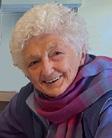
In the mid-Seventies, the post-Vatican II 'changes' began in the Church and the Society and Margaret spent five unsettled years partly doing further studies at Melbourne University and partly being 'renewed' by roaming alone through Israel and Europe, based in RSCJ communities. For two years, she taught at Woldingham, a sister school in England. On her return to New Zealand in 1982, Margaret worked for eight years in the Catholic Education Office in Wellington, then for eight years in Christchurch, where the NCRS and other Adult Education programs took her driving all over the South Island.
After being in charge at Baradene, from 1999 to 2001, Margaret joined the 'Westie' community at Massey and spent seven years combining parish activities there with ten years as a Defender of the Bond in the Diocesan Marriage Tribunal.
Vale - Maria Josepha Hsu RSCJ
15 April 1920 - 22 June 2024
Maria Josepha was born in Haimen, Kiangsu, China.
In 1939 when she was 18, she followed her sister, Patricia, and entered the Society of the Sacred Heart in Shanghai. Patricia and Maria Josepha were the first Chinese woman to enter the Society.

In 1948, with the rise of the communist regime, the RSCJ moved away from China. The Sisters were scattered throughout Asia and Maria Josepha was sent to Japan. In 1959 she came to Sydney, bringing with her the gift of internationality, with the richness of her Chinese culture and her life experiences in Japan.
Maria Josepha was a very bright person and had an incredible memory, as she entertained many of us with stories from her early childhood. She had a reverence for all things spiritual and it showed in her fidelity to prayer, and in the way she related to each person. She was always thoughtful and she was a very loyal friend, with friends within and outside of the Society.
We remember those members of our community who have recently died and keep them and their families in our thoughts and prayers.
Sueanne Dewar (King, RB 1971) on 17 June 2023
Caroline Morgan (1979) on 7 July 2023
Robyn Burton (K 1956) on 4 October 2023
Nicole Pietsch (Ireland, 1989) on 10 March 2024
Jane Burns AM (RB 1950) on 17 April 2024
Ann Ryan (Oxenham, K 1948) on 28 April 2024
Suzanne (Suzie) Fagan (1980) on 22 April 2024
Edwina Considine (Kennedy, 1979) on 11 May 2024
Carol Jones (Dillon, RB 1964) on 3 June 2024
Caroline Crilly (Fothergill, S) on 21 June 2024
Jane Farah (Kennedy, 1981) on 24 June 2024
Angela Kenny (Dureau, K 1960) on 7 July 2024
Mary Kelly (McGrath, RB 1948) on 28 June 2024
Angela Kenny (Dureau, K 1960) on 7 July 2024
Frances (Betty) Remond (Moran, RB 1945) on 17 July 2024
Lucy Tyler on 9 September 2023
Nicholas Curulli on 14 August 2023
Michael Duncan on 2 January 2024
Veronica Kennedy on 3 January 2024
Elenie Diacopoulos on 14 January 2024
Geoffrey Hughes on 2 February 2024
Victoria (Vicki) Stephens on 5 February 2024
Ruth Tarlinton on 2 March 2024
Paul Remond on 11 March 2024
Rosalie David on 22 March 2024
Victor Romanov on 3 April 2024
Donna Marshall on 11 May 2024
Ronald Perry on 11 June 2024
RSCJ
Gretchen Kelly on 24 January 2024
Margaret D’Ath on 5 February 2024
Joy Belt on 3 April 2024
Maria Josepha Hsu on 22 June 2024
Please advise Victoria Dalton (daltonvi@krb.nsw.edu.au) of any members of our KRB community who have died and who you wish to be acknowledged in our KRB publications and be remembered at the annual Memorial Mass.
